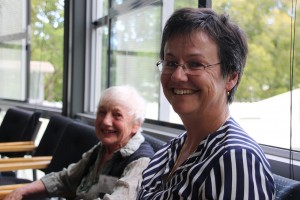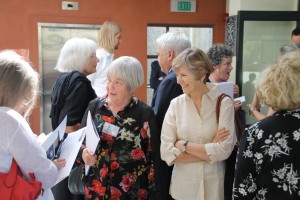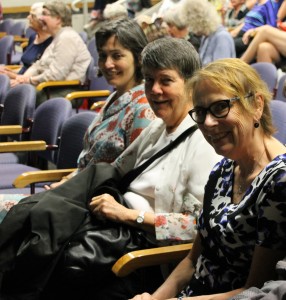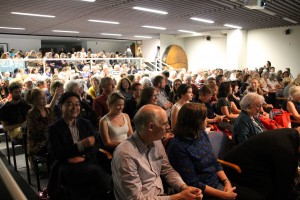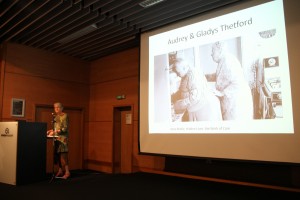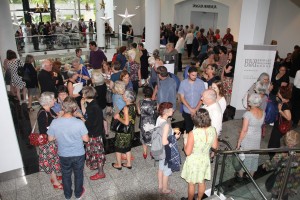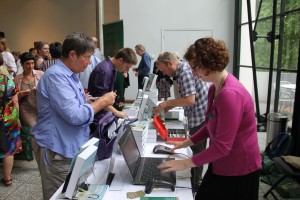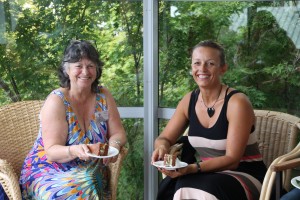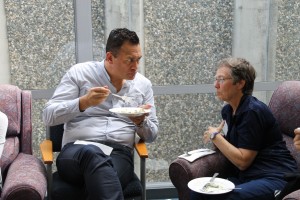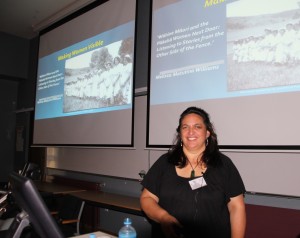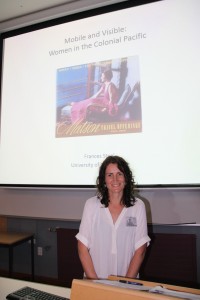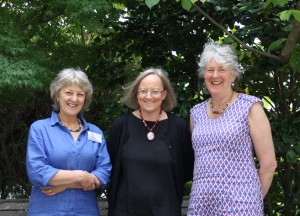Colonial Formations Conference
CALL FOR PAPERS
Colonial Formations: Connections and Collisions
University of Wollongong 24–25 November 2016
Keynote speakers:
Professor Clare Anderson, University of Leicester
Professor Jane Lydon, University of Western Australia
Dr Alice Te Punga Somerville, Macquarie University
Dr Virginia Marshall, University of Wollongong
This conference will explore colonial formations from a range of historical, contemporary and interdisciplinary perspectives. In particular it seeks to foreground the local and regional particularities of colonial dynamics alongside those of the more studied arena of ‘imperial formations’. We seek to continue the work of decentring the metropole, as well as to shed light on its enduring power and purchase. The conference’s framing themes of ‘connections’ and ‘collisions’ encourages enquiry into processes of borrowing, negotiation and collaboration, as well as contestation, conflict and Indigenous resurgence and mobilisation.
The conference also serves to mark the recent formation of the Colonial and Settler Studies Network (CASS) at the University of Wollongong. CASS promotes critical inquiry into the history, theoretical framing, and contemporary manifestations of colonialism on a global scale. We particularly foster work that places colonial and settler colonial formations in comparative and connected frames, and promote collaboration between scholars of diverse colonialisms.
Paper proposals might consider the following themes: Indigenous and subaltern networks and exchanges; Settler colonialism and its relation to other colonial formations past and present; Colonial mobilities and movements across different colonial spaces; Collaborations/resistance/resurgence/cultural activism; Violence and violations; Citizenship and the production of difference; Biopolitics and colonialism/settler colonialism; Gender and sexualities; The politics of memory
We are calling for proposals for both individual papers (20mins) and panels of up to 3 speakers (90mins). Proposals should include a 250-word abstract and a 50-word biographical statement for each speaker. For panels, please also include a title and brief rationale for the panel as a whole. Please send proposals to cass-admin@uow.edu.au by 10 June 2016.
The conference will be preceded on 23 November 2016 by an interdisciplinary one-day masterclass for postgraduates and early career researchers — ‘Confronting Colonialism’. This will be led by Professors Clare Anderson and Jane Lydon, along with CASS members. Participants will be mentored to develop their conference papers for submission as journal articles. Some travel bursaries will be available. Places are limited. Interested postgraduates and early career researchers who are submitting a paper for the conference can request a masterclass application form by emailing cass-admin@uow.edu.au.
We anticipate that one or more journal special issues will develop from the conference proceedings.
Conference on Dress, Clothing and Bodies
Dressing Global Bodies: Clothing Cultures, Politics and Economies in Globalizing Eras, c. 1600s-1900s
7-9 July 2016, University of Alberta, Edmonton, Canada
Co-Organized with the Pasold Research Fund, UK
Website: dressingglobalbodies.com
The clothes on our backs are intimately connected with bodily experiences, cultural, social and gender portrayals, as well as the economies of fashioning and re-fashioning across place and time. Garments reflect the priorities of local and international economies, collective and personal inclinations, religious norms and conversions. These materialities are shaped by global flows of cloth and beads, furs, ready-made and second-hand apparel, in dynamic processes of fashion exchange. Dress is a charged cultural instrument, as evident in colonial and decolonization processes, social and political agendas, animated by cross-cultural and commercial flows, industrial and institutional innovations.
This international conference will showcase new historical research on the centrality of dress in global, colonial and post-colonial engagements, emphasizing entangled histories, comparative and cross-cultural analyses. This scholarship redefines national and collective communities, in the practice of fashion and the dynamics of re-fashioning and re-use, from the seventeenth through the twentieth century.
Themes could include, but are not limited to:
Cross-cultural practices and patterns of dress and / or body adornment
Production and distribution of clothing (across cultures, entangled, comparative)
Gendered and ethnic shaping of dress and dress practice
Fashion politics of dress in globalizing contexts
Circulation and re-use of dress and dress idioms
Design in globalized contexts
Representations of clothing cultures
Appropriation / acculturation of designs, materials, motifs
Dress in colonial / post-colonial contexts
We especially welcome themed panels, maximum three speakers.
We welcome individual papers as well.
Submission Requirements:
For individual speakers: a 200-word proposal and a 1 page CV
For full panels: a 200-word panel rationale, plus 200 word proposals for each panel participant along with their individual 1 page CVs.
Send all submissions to: dgb.conference@ualberta.ca
Deadline for submissions: 1 October 2015.
Acceptances of papers to be announced: 1 December 2015.
Plenary Speakers:
Antonia Finnane, Professor, School of Historical & Philosophical Studies, University of Melbourne. Author of Changing Clothes in China: Fashion, History, Nation. She will address fashion in Qing/Early Republican China
Karen Tranberg Hansen, Professor Emerita. Department of Anthropology, Weinberg College of Arts & Sciences, Northwestern University. Author of Salaua: The World of Secondhand Clothing and Zambia. She will address cultures of dress within Global Africa.
Dana Leibsohn, Priscilla Paine Van der Poel Professor of Art, Department of Art, Smith College. She will address colonial practice, cross-cultural influences in the dress of colonial Spanish America.
Principal Organizers:
Beverly Lemire, Professor & Henry Marshall Tory Chair, Department of History & Classics, University of Alberta
Giorgio Riello, Professor, Department of History and Director, Institute of Advanced Studies, University of Warwick
International & Local Organizing Committee Members:
Anne Bissonnette, Associate Professor & Curator, Department of Human Ecology, University of Alberta
Lisa Claypool, Associate Professor, Department of Art & Design, University of Alberta
Lianne McTavish, Professor, Department of Art & Design, University of Alberta
Ann Salmonson, Masters Candidate, Department of Art & Design, University of Alberta
Ashley Sims, Doctoral Candidate, Department of History & Classics, University of Alberta
Meaghan Walker, Doctoral Candidate, Department of History & Classics, University of Alberta
Sophie White, Associate Professor, Department of American Studies, University of Notre Dame
New Zealand Women’s History Conference
A reminder that abstracts for the Making Women Visible Conference are due by 31 August. We are excited to announce that in addition to special forums, there will be two keynote speakers: Dr Melissa Matutina Williams (Auckland) and Dr Frances Steel (Wollongong).
Get those abstracts in!
Making Women Visible: A Conference in Honour of Barbara Brookes
15-17 February 2016, University of Otago.
Making Women Visible honours Professor Barbara Brookes, one of New Zealand’s most important scholars, who has worked at the cutting-edge of historical enquiry for several decades. Over the course of her career, Barbara’s scholarship has encompassed diverse topics (including reproductive politics, mental health, film, photography, performance, race relations, disability, sexuality and feminism). These topics have been approached in imaginative ways (biography, the histories of emotion, comparative and transnational approaches), but throughout she has consistently placed women at the centre of her work.
This conference (15-17 February 2016) not only celebrates a distinguished career, but also marks the arrival of Barbara’s much-awaited survey history of New Zealand women, which will be officially launched as part of the conference programme. Its publication invites a renewed focus on New Zealand women’s history. It has been over twenty years since the suffrage centenary that was the catalyst for the publication of a number of important books, including Sandra Coney’s foundational survey history, Standing in the Sunshine. Since 1993, the number of books, edited collections, articles and theses concerned with aspects of women’s history has greatly expanded and the methodological approaches have undergone evolution. We think it is time, therefore, to reflect on the body of scholarship produced by historians since the early 1990s – to consider its impact on the teaching, researching, and writing of women’s history since then and also to look forward to where the field is headed.
The conference theme focuses on one of the core goals of women’s history, which has been to make women visible, therefore we invite papers that address ‘visibility’ from a variety of disciplinary perspectives. The conference committee particularly invites proposals for individual papers and panels that reflect Barbara’s areas of research, speak to the theme of visibility and consider the generation of scholarship since the early 1990s with a view to what has changed and what challenges lie ahead. We are especially keen to receive paper proposals from postgraduates as well as those working in the arts and heritage sector.
Please submit a 250-word abstract along with a short biographical statement by 31 August 2015 to crocc@otago.ac.nz
If you wish to propose a panel, please provide a panel title, along with abstracts and biographical statements for each presenter, and submit it to crocc@otago.ac.nz by 31 August 2015.
Conference committee: Jane Adams, Katie Cooper, Jane McCabe, Sarah Christie and Angela Wanhalla (University of Otago)
Conference on New Zealand’s Scientific Heritage
CALL FOR PAPERS: FINDING NEW ZEALAND’S SCIENTIFIC HERITAGE
Venue: Victoria University of Wellington
Date: 23-24 November 2015
2015 is a significant year for New Zealand science history. It is 150 years since James Hector arrived in Wellington to set up many of our national science organisations and 100 years since Ernest Marsden arrived in Wellington.
In 1865 Hector was appointed head of the New Zealand Geological Survey, with his responsibilities eventually including the Colonial Museum, Colonial Observatory, Meteorological Service, Colonial Botanic Gardens, and the New Zealand Institute. In 1915, Marsden arrived in New Zealand to be professor of physics at Victoria University. He stayed in this position for seven years then, in 1926, was appointed head of New Zealand’s Department of Scientific and Industrial Research, a position he held until 1946.
In 1983, The Royal Society of New Zealand and the Alexander Turnbull Library ran a conference In Search of New Zealand’s Scientific Heritage. In the more than 30 years since this date there have been significant research and publications into New Zealand’s science history but there is still much to explore. The 2015 anniversaries invite a renewed focus on New Zealand’s science history and provide momentum leading up to the Royal Society of New Zealand’s 150th anniversary in 2017 and the 250th anniversary of the arrival of the first European scientists in 2019.
The conference committee invites proposals for individual papers, panels, and posters for Finding New Zealand’s Scientific Heritage, 23-24 November 2015. Proposals are due 30 June, 2015. Find out more about the conference, keynote speakers, and how to submit an abstract in the attached CFP.
Scots and Indigenous Peoples
We are delighted to announce that Professor Ann Curthoys is giving a free public lecture entitled “Scots and Indigenous Peoples in the Australian Colonies” on Monday 24 November in Castle Lecture Theatre 1 at 3.30. Professor Curthoy’s lecture also doubles as the opening keynote address for the Migrant Cross-Cultural Encounters Conference (24-26 November) being co-convened by the Centre for Research on Colonial Culture, the Centre for Irish and Scottish Studies, the Asian Migrations research theme, and the Cross-Cultural Comparative Studies research theme.
Professor Curthoys is one of Australia’s most respected historians. She is an Honorary Professor at the University of Sydney, and a member of the Australian Academy of the Humanities and the Academy of Social Sciences in Australia. In 2013, she was awarded the History Council of New South Wales Annual History Citation that recognises and honours an individual who has made a significant and lifelong contribution to the profession and practice of history. She was formerly an Australian Research Council Professorial Fellow at the University of Sydney (2008-13) and Manning Clark Professor of History at the Australian National University (1996-2008). She has written widely on questions of Aboriginal history, genocide theory, and race relations in colonial and modern Australia. Her current research focuses on Indigenous-settler relations in the Australian colonies. As part of her ongoing research on the British Empire, settler self-government, and Indigenous peoples, she has a particular interest in Scottish-Indigenous relations in the mid nineteenth century, and it is this aspect of her research that she will detail in her public lecture.
She has provided the following abstract:
We can tell the history of Scottish migration to colonial Australia in several very different ways. We might emphasise a generally positive history of struggle and achievement as Scots migrated from one end of the world to another. Or we might narrate a tragic history of Aboriginal dispossession, displacement and replacement in the face of European settlement, a story of violence and great loss of life, and sometimes the destruction of whole societies as settlers fought to secure their hold on the land. Though these two stories are usually told separately, they are, of course, connected – Scots and Aboriginal people encountered one another constantly, and Scottish upward mobility was built on Aboriginal dispossession. Though the task is challenging and difficult, it is worth considering both Scottish diaspora and Indigenous histories together, for when we do, we can better understand some of the complexities of empire and colonisation in the nineteenth century. A focus on Scots can help us deconstruct the categories ‘British’ and ‘settler’, and foreground in new ways the connections between immigrants’ origins and background (in political, cultural, economic, and social terms) and their cross-cultural interactions in the colonies.
In this paper, I discuss the cross-cultural encounters between Scots and Aboriginal people in Australia from the mid 1830s to the mid 1870s. This was the period when a set of struggling British colonies – mostly dependent on convict labour, covering relatively small regions of settlement, and under direct British rule – were transforming into free self-governing democratic colonies dominating vast regions of the continent. While some areas were still experiencing intense frontier conflict and violence, in others the violence had largely ended and a post-frontier society, involving new settler-Indigenous relationships, was emerging. The Scots I consider included both pastoralists and their critics, such as journalists, politicians, amateur ethnographers, and men of the church, and the Indigenous peoples they met are those whose country lay in the two Australian colonies named after Queen Victoria – Victoria and Queensland.
Conference Registration Open
Registration for the Migrant Cross-Cultural Encounters Conference (24-26 November) is now open. This multi-disciplinary conference brings together four major research hubs in the Division of Humanities at the University of Otago, including the Centre for Research on Colonial Culture, the Centre for Irish and Scottish Studies, the Asian Migration research theme, and the Cross-Cultural Comparative Studies research theme and has attracted four great keynote speakers: Brenda Yeoh (NUS), Ann Curthoys (Sydney), Regina Ganter (Griffith) and Ian Smith (Otago). Clicking on the highlighted text will take you to the conference website where you can view a draft programme and also register. Do note that registration closes at 5pm on November 10th. We do hope that you will join us for what promises to be a fantastic conference!
CFP: Colonial Christian missions and their legacies, @University of Copenhagen
This may be of interest…
CALL FOR PAPERS: Colonial Christian missions and their legacies
An international conference to be held at the University of Copenhagen, 27-29 April 2015
Confirmed speakers: Laura Stevens (University of Tulsa), Julie Evans (University of Melbourne), Kirsten Thisted (University of Copenhagen), Alan Lester (University of Sussex), Rebekka Habermas, (University of Göttingen)
Over the past decade the entanglement of mission work and colonialism has become central to representations of Christian missions and their legacies. Indeed, discussions over the role and legacy of both Catholic and Protestant missions are currently taking place both in the global historiography on European missions, and in more localized discussions of missions in a diverse range of post-colonial, and not-yet-post-colonial contexts. Despite disagreement on the precise nature of missions’ legacy, most commentators seem to agree that in social, religious, linguistic and educational terms, histories of Christian missions still have a significant impact on post- and not-yet-post- colonial societies today. This conference aims to take a global look at these histories, their legacies and representations. How are colonial Christian missions remembered or memorialised in different contexts and spaces? How are they forgotten? What voice do indigenous people (Christian and non-Christian) have in these representations? And how can we, as academics, artists, museum directors and educators, move towards representing them in more multifaceted, nuanced, and thought-provoking ways? Any types of representations may be considered including historical, artistic, literary, musical, sculptural, filmic, and papers comparing two or more contexts, or taking a global or transnational approach, are welcomed.
Possible topics include, but are not limited to: the history and legacy of relationships between Christian missions and colonial states; the influence of different aspects of colonial rule (economic, social, intimate, etc), on the ways in which Christian mission was articulated; the legacy of Christian missions for past and continuing relationships between indigenous and non-indigenous Christians within social, cultural and religious institutions; the legacy of Christian missions’ constructions of gender; the legacy of Christian missions’ influence on language and translation practices; the influence of Christian missions on indigenous political or artistic expressions; continuities of ideas, discourses, or emotions associated with mission, from the colonial era until now; efforts to reclaim / rewrite / re-represent mission histories by indigenous or non-indigenous peoples and their reception; issues around dramatization or fictionalization in representations of mission histories; vested interests in the representation of Christian missions.
Please send an abstract of 300 words, along with a short biography (max. 200 words) and CV to Claire McLisky at cmclisky@hum.ku.dk by 31 October 2014.
Forthcoming Conference
Migrant Cross-Cultural Encounters: A Multidisciplinary Conference
24-26 November 2014
University of Otago, Dunedin, New Zealand
Historical and contemporary global migration involves a range of cross-cultural encounters, but how are these interactions discussed, debated, and defined? This three-day multidisciplinary conference seeks to examine past and present migrant encounters with other peoples in a diverse range of locations. Papers from various disciplinary angles are welcome from a variety of themes and from any historical period or region.
Themes may include but are not limited to:
- Race, ethnicity and citizenship
- War, migration and cross-cultural contact
- Labour, migration and cross-cultural encounters
- Empire, contact and mobility
- Gender, migration, and cross-cultural encounters
Please provide:
- a title
- a 250-word abstract of your paper
- brief biographical information (including institutional affiliation and contact details).
All proposals will be assessed after the deadline of Friday 11 July 2014. If you require an earlier acceptance please advise us.
Proposals or requests for further information should be sent to: migrants@otago.ac.nz
The conference is sponsored by four key multidisciplinary research hubs in the Division of Humanities at the University of Otago:
- Centre for Irish and Scottish Studies
- Centre for Research on Colonial Culture
- Asian Migrations Research Theme
- Comparative and Cross-Cultural Studies Research Theme
For further information see the website (click the highlighted text).

